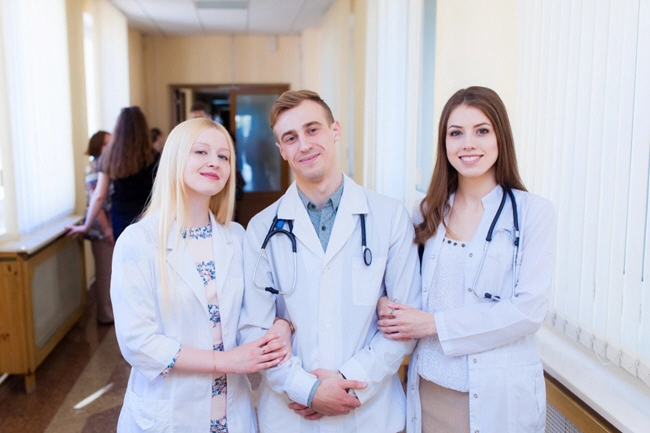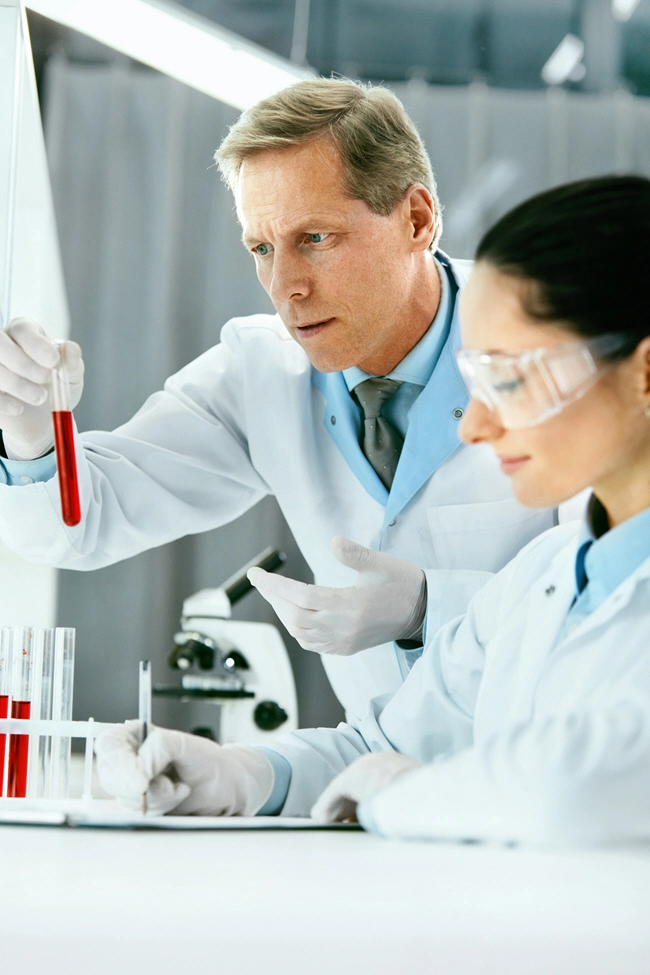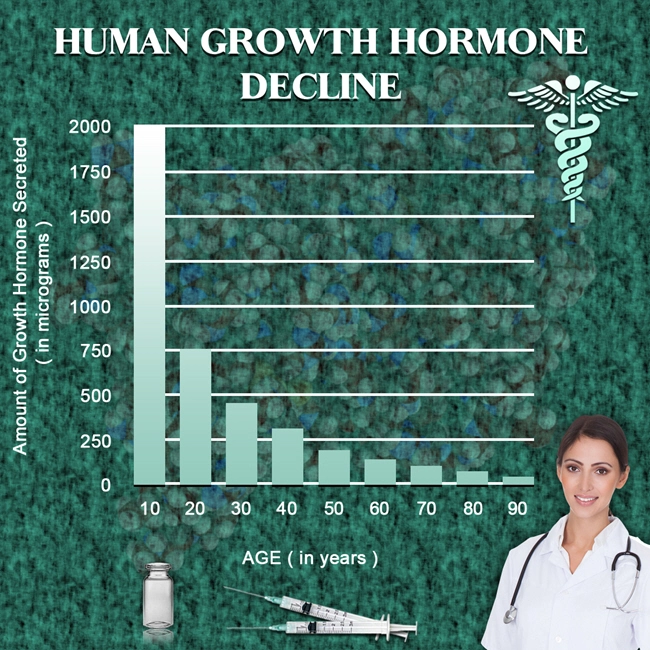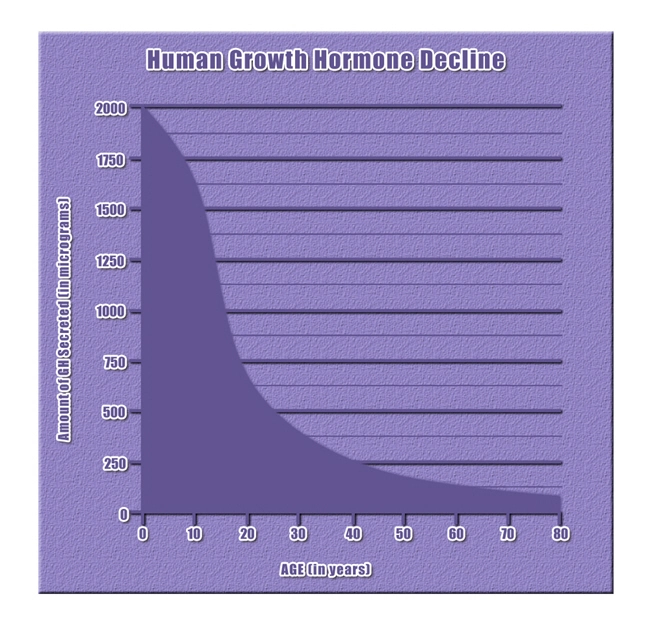
Introduction to Genetics and Bodybuilding
The pursuit of an ideal physique through bodybuilding is a common goal among many American males. While dedication and hard work are essential, the role of genetics in bodybuilding cannot be overstated. Understanding the genetic factors that influence muscle growth, strength, and recovery can provide valuable insights for those looking to optimize their bodybuilding efforts.
Genetic Variants and Muscle Hypertrophy
Muscle hypertrophy, or the increase in muscle size, is influenced by several genetic factors. One of the most studied genes in this context is the **ACTN3 gene**, which encodes for the alpha-actinin-3 protein found in fast-twitch muscle fibers. These fibers are crucial for generating force and speed, making them vital for activities such as weightlifting. Research has shown that individuals with the R allele of the ACTN3 gene tend to have a genetic advantage in muscle power and performance. For American males interested in bodybuilding, knowing their ACTN3 genotype could help tailor their training to maximize muscle growth and strength.
The Role of Myostatin
Another significant genetic factor is the **myostatin gene (MSTN)**, which regulates muscle growth. Myostatin acts as a negative regulator, meaning it inhibits muscle growth. Mutations in the MSTN gene can lead to reduced myostatin activity, resulting in increased muscle mass. While such mutations are rare, understanding the role of myostatin can guide the use of potential therapies or supplements that aim to inhibit its activity, thereby enhancing muscle growth for bodybuilding enthusiasts.
Genetic Influence on Recovery and Injury
Recovery and injury prevention are crucial aspects of bodybuilding, and genetics play a role here as well. The **COL1A1 gene**, which is involved in the production of collagen, affects the strength and flexibility of tendons and ligaments. Variations in this gene can influence an individual's susceptibility to injuries such as tendonitis, which is common among bodybuilders. American males with a genetic predisposition to weaker collagen might need to focus more on flexibility and recovery techniques to maintain their bodybuilding regimen safely.
Hormonal Genetics and Bodybuilding
Hormones such as testosterone play a pivotal role in muscle development. The **androgen receptor gene (AR)** influences how the body responds to testosterone. Variations in the AR gene can affect muscle mass and strength, as well as the effectiveness of anabolic steroids, which some bodybuilders might consider. Understanding one's AR gene variant can help in making informed decisions about training and supplementation strategies.
Nutritional Genetics and Muscle Building
Nutrition is another critical component of bodybuilding, and genetic factors can influence how individuals respond to different diets. The **FTO gene**, for instance, is associated with body mass and fat distribution. Variants of this gene can affect an individual's metabolism and how they respond to dietary interventions aimed at muscle building. American males can benefit from genetic testing to tailor their nutrition plans to optimize muscle growth and minimize fat gain.
Conclusion: Integrating Genetics into Bodybuilding
Incorporating genetic insights into bodybuilding can significantly enhance the effectiveness of training and nutritional strategies. While genetics are not the sole determinant of bodybuilding success, understanding one's genetic predispositions can help American males set realistic goals and design personalized plans that align with their genetic makeup. As genetic testing becomes more accessible, it offers a promising tool for those dedicated to achieving their bodybuilding aspirations.
By embracing the science of genetics, American males can take a more informed approach to bodybuilding, potentially leading to better outcomes and a more sustainable fitness journey.
Contact Us Today For A Free Consultation
Dear Patient,
Once you have completing the above contact form, for security purposes and confirmation, please confirm your information by calling us.
Please call now: 1-800-380-5339.
Welcoming You To Our Clinic, Professor Tom Henderson.

- Unveiling the Synergy Between Body Building and Diabetes Control in American Males [Last Updated On: February 27th, 2025] [Originally Added On: February 27th, 2025]
- The Therapeutic Impact of Bodybuilding on Mental Health [Last Updated On: March 2nd, 2025] [Originally Added On: March 2nd, 2025]
- Enhancing Bodybuilding Performance and Injury Prevention: The Integral Role of Physical Therapy [Last Updated On: March 3rd, 2025] [Originally Added On: March 3rd, 2025]
- Optimizing Nutrition for Successful Bodybuilding: A Comprehensive Guide [Last Updated On: March 4th, 2025] [Originally Added On: March 4th, 2025]
- Body Building: A Strategic Approach to Combat Obesity and Metabolic Syndrome in American Males [Last Updated On: March 4th, 2025] [Originally Added On: March 4th, 2025]
- Bodybuilding: Impact on Health and Body Composition in American Males [Last Updated On: March 5th, 2025] [Originally Added On: March 5th, 2025]
- Exploring the Cardiovascular Benefits of Bodybuilding for American Men [Last Updated On: March 6th, 2025] [Originally Added On: March 6th, 2025]
- Optimizing Orthopedic Health in Bodybuilding: Strategies to Prevent Injuries and Enhance Performance [Last Updated On: March 7th, 2025] [Originally Added On: March 7th, 2025]
- Unveiling the Nexus of Longevity and Body Building: Insights from Geriatric Medicine [Last Updated On: March 7th, 2025] [Originally Added On: March 7th, 2025]
- The Dark Side of Bodybuilding: Risks and Consequences of Anabolic Steroid Use [Last Updated On: March 8th, 2025] [Originally Added On: March 8th, 2025]
- The Endocrinological Blueprint of Bodybuilding: Hormones, Risks, and Strategies for American Males [Last Updated On: March 9th, 2025] [Originally Added On: March 9th, 2025]
- Bodybuilding Boosts Mental Health: Self-Esteem, Stress Relief, and Social Bonds for American Men [Last Updated On: March 12th, 2025] [Originally Added On: March 12th, 2025]
- The Impact of Bodybuilding on Sleep: A Comprehensive Analysis for American Males [Last Updated On: March 13th, 2025] [Originally Added On: March 13th, 2025]
- Unleashing the Power of Body Building: A Therapeutic Approach to Managing Chronic Pain in American Males [Last Updated On: March 15th, 2025] [Originally Added On: March 15th, 2025]
- Bodybuilding: A Potent Strategy for Hypertension Management in American Males [Last Updated On: March 17th, 2025] [Originally Added On: March 17th, 2025]
- Injury Prevention Strategies for American Male Bodybuilders: Expert Physiotherapy Insights [Last Updated On: March 17th, 2025] [Originally Added On: March 17th, 2025]
- Body Building Myths and Facts for American Males: A Holistic Approach [Last Updated On: March 18th, 2025] [Originally Added On: March 18th, 2025]
- Integrating Bodybuilding into Post-Surgical Rehabilitation for American Males: A Physician's Guide [Last Updated On: March 19th, 2025] [Originally Added On: March 19th, 2025]
- Bodybuilding as a Therapeutic Strategy for Osteoporosis in American Men [Last Updated On: March 19th, 2025] [Originally Added On: March 19th, 2025]
- Competitive Bodybuilding: Health Risks and Mitigation Strategies for American Males [Last Updated On: March 20th, 2025] [Originally Added On: March 20th, 2025]
- Bodybuilding's Impact on Endocrine System: Hormones, Health Risks, and Management Strategies [Last Updated On: March 20th, 2025] [Originally Added On: March 20th, 2025]
- Body Building: A Therapeutic Approach to Managing Stress and Anxiety in American Males [Last Updated On: March 21st, 2025] [Originally Added On: March 21st, 2025]
- Debunking Menstrual Cycle Myths: Optimizing Women's Bodybuilding Training [Last Updated On: March 22nd, 2025] [Originally Added On: March 22nd, 2025]
- Bodybuilding Boosts Immunity: A Comprehensive Guide for American Males [Last Updated On: March 22nd, 2025] [Originally Added On: March 22nd, 2025]
- Bodybuilding's Role in Enhancing Addiction Recovery for American Males [Last Updated On: March 22nd, 2025] [Originally Added On: March 22nd, 2025]
- Asthma and Bodybuilding: Safety, Benefits, and Program Tailoring for American Males [Last Updated On: March 22nd, 2025] [Originally Added On: March 22nd, 2025]
- Managing Lifestyle Diseases in Bodybuilding: Strategies for American Males [Last Updated On: March 22nd, 2025] [Originally Added On: March 22nd, 2025]
- Bodybuilding's Role in Enhancing Holistic Health for American Males [Last Updated On: March 22nd, 2025] [Originally Added On: March 22nd, 2025]
- Bodybuilding Strategies for American Males to Combat Age-Related Muscle Loss [Last Updated On: March 22nd, 2025] [Originally Added On: March 22nd, 2025]
- Bodybuilding and Heart Health: Risks and Cardiologist's Mitigation Strategies [Last Updated On: March 22nd, 2025] [Originally Added On: March 22nd, 2025]
- Bodybuilding's Impact on Prostate Health: Hormones, Supplements, and Prevention Strategies [Last Updated On: March 23rd, 2025] [Originally Added On: March 23rd, 2025]
- Bodybuilding in Young Males: Benefits, Risks, and Safe Practices [Last Updated On: March 23rd, 2025] [Originally Added On: March 23rd, 2025]
- Essential Vitamins and Supplements for American Male Bodybuilders: Enhancing Muscle Growth and Performance [Last Updated On: March 23rd, 2025] [Originally Added On: March 23rd, 2025]
- Kidney Health in Bodybuilding: Safe Practices for American Males [Last Updated On: March 23rd, 2025] [Originally Added On: March 23rd, 2025]
- Orthostatic Hypotension in Bodybuilding: Risks, Symptoms, and Management Strategies for American Males [Last Updated On: March 23rd, 2025] [Originally Added On: March 23rd, 2025]
- Body Building: A Non-Pharmacological Approach to Managing Parkinson's in American Males [Last Updated On: March 23rd, 2025] [Originally Added On: March 23rd, 2025]
- Rheumatoid Arthritis Management: Body Building Benefits for American Males [Last Updated On: March 24th, 2025] [Originally Added On: March 24th, 2025]
- Bodybuilding as a Natural Strategy for Arthritis Management in American Men [Last Updated On: March 24th, 2025] [Originally Added On: March 24th, 2025]
- Liquid Diets in Bodybuilding: Risks, Benefits, and Sustainable Alternatives [Last Updated On: March 24th, 2025] [Originally Added On: March 24th, 2025]
- Bodybuilding Boosts Postnatal Recovery for New American Fathers: Physical and Psychological Benefits [Last Updated On: March 24th, 2025] [Originally Added On: March 24th, 2025]
- Bodybuilding Benefits for American Males with COPD: Strength, Respiratory Health, and Well-being [Last Updated On: March 24th, 2025] [Originally Added On: March 24th, 2025]
- Bodybuilding: A Comprehensive Anti-Aging Strategy for American Men [Last Updated On: March 24th, 2025] [Originally Added On: March 24th, 2025]
- Bodybuilding Enhances Gut Health in American Males: Clinical Insights and Benefits [Last Updated On: March 24th, 2025] [Originally Added On: March 24th, 2025]
- Bodybuilding's Psychological Impact on American Teenage Males: Benefits and Risks [Last Updated On: March 25th, 2025] [Originally Added On: March 25th, 2025]
- Bodybuilding Enhances Strength Recovery in American Males Post-Chemotherapy [Last Updated On: March 25th, 2025] [Originally Added On: March 25th, 2025]
- Body Building Enhances Lung Function in American Males: A Respiratory Therapist's Insight [Last Updated On: March 25th, 2025] [Originally Added On: March 25th, 2025]
- Bodybuilding Reduces Colon Cancer Risk in American Males: Diet, Hormones, and Fitness [Last Updated On: March 25th, 2025] [Originally Added On: March 25th, 2025]
- Bodybuilding's Impact on Metabolism: Diet, Training, and Hormonal Effects [Last Updated On: March 25th, 2025] [Originally Added On: March 25th, 2025]
- Essential Safety Guidelines for American Male Bodybuilders [Last Updated On: March 26th, 2025] [Originally Added On: March 26th, 2025]
- Bodybuilding Boosts Immune Health: Optimal Practices for American Males [Last Updated On: March 26th, 2025] [Originally Added On: March 26th, 2025]
- Male Menopause and Body Building: Strategies for Muscle Growth and Health [Last Updated On: March 26th, 2025] [Originally Added On: March 26th, 2025]
- Sickle Cell Disease and Body Building: Benefits, Risks, and Guidelines for American Males [Last Updated On: March 26th, 2025] [Originally Added On: March 26th, 2025]
- Body Building and Heart Health: Benefits and Risks for American Males [Last Updated On: March 26th, 2025] [Originally Added On: March 26th, 2025]
- Bodybuilding: Building Mental Resilience and Fortitude in American Men [Last Updated On: March 26th, 2025] [Originally Added On: March 26th, 2025]
- Bodybuilding Boosts Brain Health: A Holistic Approach for American Males [Last Updated On: March 27th, 2025] [Originally Added On: March 27th, 2025]
- Body Building and Dementia Risk: Insights for American Males [Last Updated On: March 27th, 2025] [Originally Added On: March 27th, 2025]
- Bodybuilding: A Holistic Approach for American Males with Chronic Degenerative Diseases [Last Updated On: March 27th, 2025] [Originally Added On: March 27th, 2025]
- Bodybuilding: A Preventive Strategy for Musculoskeletal Health in American Males [Last Updated On: March 27th, 2025] [Originally Added On: March 27th, 2025]
- Hydration Strategies for American Male Bodybuilders: Enhancing Performance and Health [Last Updated On: March 28th, 2025] [Originally Added On: March 28th, 2025]
- Bodybuilding Enhances Bone Density in American Males: Training and Nutrition Insights [Last Updated On: March 28th, 2025] [Originally Added On: March 28th, 2025]
- Injury Prevention and Management Strategies for American Male Bodybuilders [Last Updated On: March 29th, 2025] [Originally Added On: March 29th, 2025]
- Bodybuilding as Adjunct Therapy for Mood Disorders in American Males [Last Updated On: March 29th, 2025] [Originally Added On: March 29th, 2025]
- Bodybuilding as a Therapeutic Tool for PTSD in American Males: Benefits and Implementation [Last Updated On: March 29th, 2025] [Originally Added On: March 29th, 2025]
- Bodybuilding's Impact on Life Expectancy: Benefits, Risks, and Balance for American Males [Last Updated On: March 31st, 2025] [Originally Added On: March 31st, 2025]
- Bodybuilding's Impact on Metabolism and Health in American Males [Last Updated On: April 1st, 2025] [Originally Added On: April 1st, 2025]
- Medically Supervised Bodybuilding: A Safe Path to Fitness for American Males [Last Updated On: April 1st, 2025] [Originally Added On: April 1st, 2025]
- Bodybuilding Enhances Cardiovascular Health in American Males: A Comprehensive Guide [Last Updated On: April 2nd, 2025] [Originally Added On: April 2nd, 2025]
- Bodybuilding's Impact on Hormones: Testosterone, Cortisol, and Growth Hormone Fluctuations [Last Updated On: April 5th, 2025] [Originally Added On: April 5th, 2025]
- Gut Health's Crucial Role in Bodybuilding for American Males [Last Updated On: April 5th, 2025] [Originally Added On: April 5th, 2025]
- Bodybuilding Enhances Recovery and Well-being Post Joint Replacement Surgery [Last Updated On: April 5th, 2025] [Originally Added On: April 5th, 2025]
- Stretching Essentials for American Male Bodybuilders: Enhancing Performance and Health [Last Updated On: April 6th, 2025] [Originally Added On: April 6th, 2025]
- Bodybuilding as Effective Stress Management for American Males: Clinical Insights [Last Updated On: April 7th, 2025] [Originally Added On: April 7th, 2025]
- Enhancing Bodybuilding with Flexibility: Benefits and Strategies for American Males [Last Updated On: April 7th, 2025] [Originally Added On: April 7th, 2025]
- Bodybuilding as a Therapeutic Approach to Managing Sciatica in American Males [Last Updated On: April 9th, 2025] [Originally Added On: April 9th, 2025]
- Structured Body Building: A Preventive Strategy for Low Back Pain in American Males [Last Updated On: April 9th, 2025] [Originally Added On: April 9th, 2025]
- Bodybuilding: A Holistic Approach to Managing ADHD in American Men [Last Updated On: April 10th, 2025] [Originally Added On: April 10th, 2025]
- Bodybuilding and Back Pain: Chiropractic Strategies for Prevention and Management [Last Updated On: April 10th, 2025] [Originally Added On: April 10th, 2025]
- Optimizing Protein Intake for Vegetarian Bodybuilding in American Males [Last Updated On: April 12th, 2025] [Originally Added On: April 12th, 2025]
- Bodybuilding Safely During Partner's Pregnancy: Guidelines for Expectant Fathers [Last Updated On: April 12th, 2025] [Originally Added On: April 12th, 2025]
- Bodybuilding Overexertion Risks and Safe Training Strategies for American Males [Last Updated On: April 15th, 2025] [Originally Added On: April 15th, 2025]









